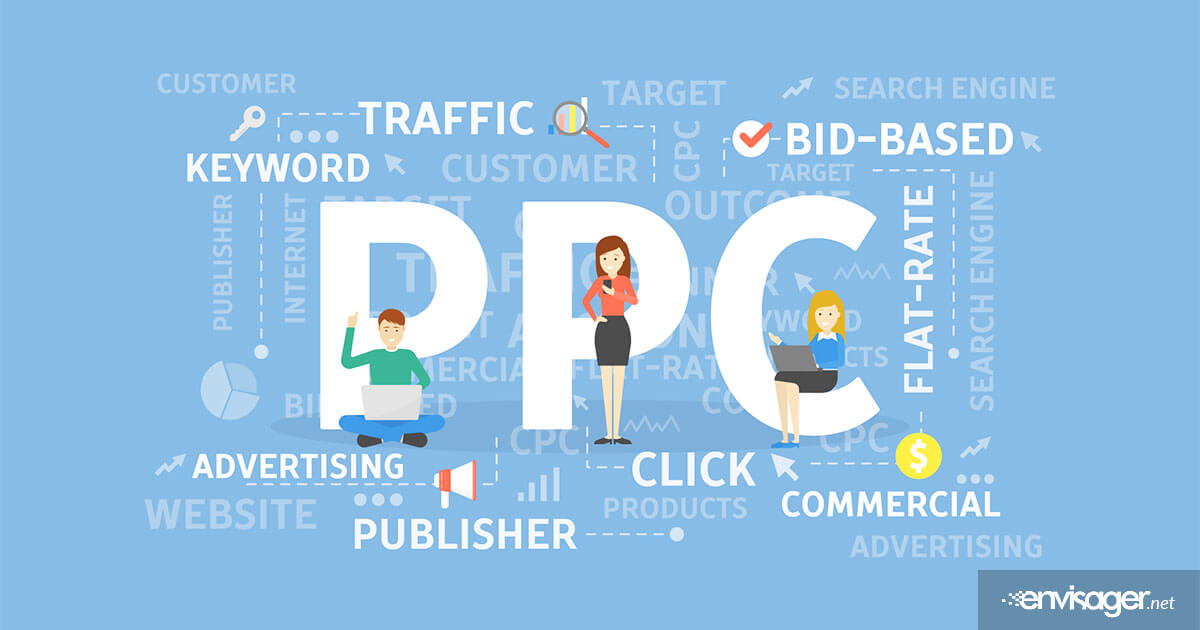Local PPC Strategy: Making AdWords Work for Your Small Business

If you are trying to gain the most efficient use of your AdWords spend with little success or your local PPC strategy not delivering the expected results, you’re not alone. The truth is, your pay-per-click (PPC) ads don’t need to be seen by everyone in the world. Depending on your business, it is most likely most of the products and services you’re advertising is limited to a few countries or cities. This is where local PPC comes in.
Local PPC or Local Pay-Per-Click, is an AdWords advertising strategy that lets you target your ads to prospective customers within a specific location that you specify. Small business owners who aim for large target areas soon realize they don’t have enough advertising spend to run a PPC campaign at that level. And while big brands are doing far better nationally, how would your small business compete with that?
While big brands are conquering the national markets offers your small business an opportunity of less competition in your local area. This is perhaps where you should fill that gap!
For example, if you operate a local business like a restaurant or hair salon in San Diego, it is not beneficial to a local PPC strategy to target customers in Raleigh. It’s evident that people in San Diego and surrounding communities are your direct customers, and this is the reason why your target focus should be local PPC.
To help you understand this better, let’s check out the following local PPC strategies.
01. Monitor Your Small Business Local PPC Budget
Define your budget PPC budget before triggering the AdWords campaign. If you’re new to AdWords, we recommend setting a flat rate for cost-per-click (CPC) as this will avoid running through your advertising dollars too quickly. It is important that you monitor your budget to see how well each campaign and keywords are performing so that you can maximize your most profitable campaigns.
By analyzing your past campaigns and making a list of the products and services that performed well, you will have an idea which ones to invest in going forward. If you’re new to AdWords, this type of analysis and PPC strategy should be done by PPC experts who have the knowledge and expertise to ensure your campaigns are properly analyzed, your budget is properly allocated, and you don’t end up spending thousands of dollars that you haven’t budgeted for.
02. Enhance Your PPC Strategy with Google Search Console Data
This PPC campaign strategy is fairly simple to implement. All you need to do is identify your best performing keywords from your Google Search Console and compare those keywords with the keywords your executed PPC campaigns were built around. If a certain keyword is fetching good impressions, it can definitely prove to be a profitable group.
So, it may be a good ideal to run your next PPC campaign using these keywords to boost your search engine positioning.
03. Create Ad Groups Based on Targeted Cities
The more locally relevant your ad groups and ad copies, the better chances they have to rank well. Let’s consider a simple example: you operate a local bakery in San Diego and have allocate a limited budget for your PPC campaign. To get the most out of your budget, you could create a campaign targeting San Diego, and then create an ad group for your targeted keywords and aim those at San Diego.
This type of local PPC strategy offer better results. Additionally, you can drill down even further by creating a campaign for each city you do business in. Your PPC campaign would be more profitable and your business would rank better if someone were looking for a bakery in San Diego because you’re focusing on local PPC versus if you would have targeted it on a national level.
This is the beauty of a local PPC strategy!
04. Use Location Extensions to Customize Your Site Links and Local Callouts
You can boost your conversions significantly by making use of AdWords ad extensions. In addition to providing your business address and phone number, go a step further and add your location to your site links and callout extensions.
Location extensions can show your business information on mobile devices and on computers. Your business information also shows on Google Maps, Display Networks, and Search Network.
05. Communicate with Your Target Audience in the Local Language
We don’t mean spoke languages like English, French, or Spanish. We are talking about how your target audience refers to your product or service. By doing that, you build a better connection with your target audience and avoid unwanted clicks.
Here’s an example: let’s assume skate park that is famous among the locals as VSP. Your official skate park’s name though is Vista Skate Park. If you really want to connect with your local community and want them to visit your park, you not only have to use search terms like skate, skateboarding, scooter, BMX, and others while writing your ad copy, but you also need to use terms that locals can relate to better. Terms like VSP, VSP skateboarding, VSP scooter because that’s how the locals are able to relate with your skate park better.
Wrapping It Up
Keeping the above suggestions in mind when creating your local PPC strategy, you should have better results for your AdWords campaigns. How do you customize your local PPC campaigns? Let us know in the comments below.

Hazel Burgess
FOUNDER/SEO DIRECTOR
Hazel is the Founder & SEO Director at Envisager Studio, a premier website design agency specializing in WordPress website design, development and internet marketing. In her spare time, she writes about search engine optimization, website design, and internet marketing.


